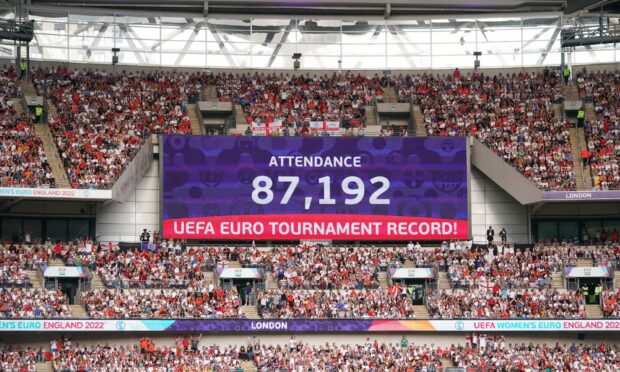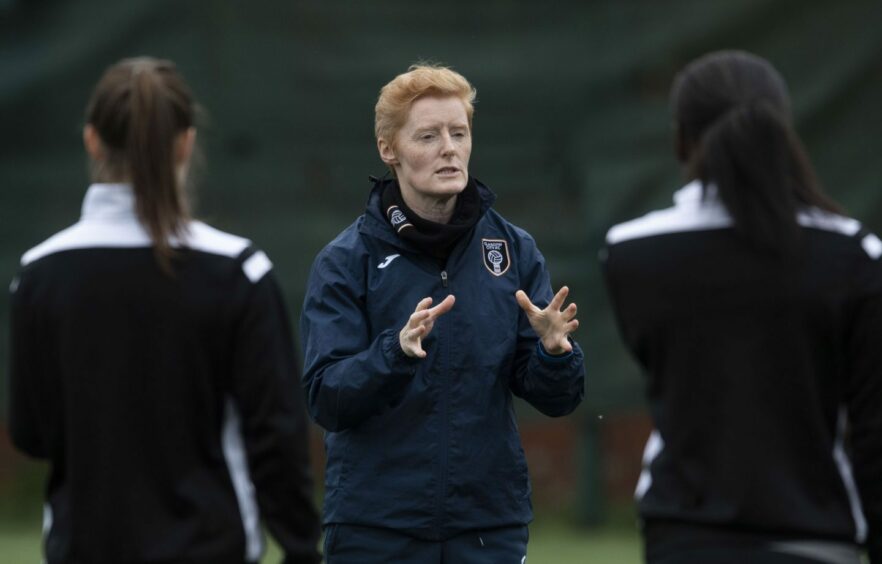The women’s game has been propelled into the limelight as the surge in coverage has been relentless since England claimed Euro victory last Sunday.
The exposure of the women’s game will hopefully continue as the FA Women’s Super League season is preparing to start next month, and the majority of the stars from the Lionesses’ winning team will be back in action for their respective club sides.
Whilst almost the entire squad was comprised of Arsenal, Manchester City, Manchester United and Chelsea players, all clubs have enjoyed the immediate impact it has had on ticket sales across the league.
Arsenal reported that their season tickets are sold out for the first time, along with Manchester City, Reading and Brighton all reporting record sales so far as well, as the season is a month away from beginning.
For my own club, Aston Villa, we start our home campaign against Manchester City on the second weekend and a new record attendance is expected to turnout at Villa Park, with sales soaring in 48 hours.
The show goes on. 🏆
Tickets are on sale now for @AVWFCOfficial's opening home game of the 2022/23 season at Villa Park. 🙌
— Aston Villa (@AVFCOfficial) August 1, 2022
Almost every club has announced multiple fixtures at their main club stadium – that so often is preserved for the men’s first team only – with Chelsea kicking off the league season as champions from Stamford Bridge.
It is only Reading and Leicester, who host their home matches at the same stadium as their men’s first team, which provides some evidence that it is certainly possible to do and many clubs just choose not to.
The argument of empty stands has been the voiced deterrent for sides in the past, however the prestige that it would bring, in my opinion, would help to give the women’s game a much more relevant platform.
It would naturally grow the fan base on top of those loyal fans that already turnout faithfully. In turn, commercial revenue and other sales would also flourish much quicker than what unconnected lower-league stadiums can offer the game.
Other countries should follow England’s lead
The FA have always been ahead of the curve when it comes to the revenue and support around their national team sides, and on the immediate back of their historic win they shrewdly announced a bonus fixture against world champions USA in October.
With England fans in a frenzy of adoration for their new heroes, the 90,000-capacity stadium was filled up in 36 hours. The FA once again showcasing how to celebrate and deliver on one of the fastest growing sports in the world.
ABSOLUTELY INCREDIBLE! 😍
All available general admission tickets for our October international against the United States have now SOLD OUT, with only hospitality options remaining on sale at this time. pic.twitter.com/lk4zrOVnub
— Lionesses (@Lionesses) August 3, 2022
I can remember since the beginning of my involvement of international football in 2005 how lavish the England setup always appeared. They have long been one of the nations that have given their women’s team the best chance of success.
Of course, the wealth of their association has enabled so much of that, but they have ensured that they have maximised that prosperity to allow investment into their squads to reap the rewards that follow.
Too often, the women’s side is given a token gesture of ‘equal’ treatment and the overall narrative around them is still considered charitable. These repressing cultures will only prevent others from the success that has been demonstrated now consistently by countries like England and USA, who have a far more ambitious strategy.
SWPL 1 returns as Rangers start title-defence against newcomers
The Scottish Women’s Premier League starts this weekend with Rangers beginning their title defence at home to newcomers Glasgow Women.
Glasgow Women are one of two teams who are not affiliated with a men’s club in the top-flight, and they should not be mixed up with rivals, Glasgow City.
Rangers were crowned SWPL 1 champions for the first time last season which ended a run of 14 consecutive titles for Glasgow City.
They claimed the top prize seven points clear of City by the end, but this will be City’s first full season with Eileen Gleeson in charge, and she has certainly been given the opportunity to bring in her own players as the summer break comes to a close.
There have been nine new arrivals over the course of the past few weeks, as City have splashed out on a combination of young local talent as well as some well-established internationals from further afield.
The trophy-less season was City’s first since 2005 and the upcoming one comes with pressure on both staff and players to return to winning ways. The cup competitions were claimed by Celtic, who defeated City in both finals, and City finished the year looking weary.
With no teams relegated last year and the league extended to 12 teams, the bottom end of the table will be a place that the two newly promoted sides will be hoping to stay clear of.
Dundee United join Glasgow Women as the other new club in the division, with last season’s bottom two including Hamilton and Partick Thistle, who will also hope for better performances this year.
Exciting times ahead for Scotland
The SFA announced that the Scottish Cup will play both semi-finals and the final at Hampden Park this season for the first time.
The announcement came in the same week as the media frenzy that has consumed much of the news since England were crowned European champions last Sunday.
It brings some welcomed excitement north of the border as the game looks to also capitalise on the positive increase in attention over the women’s game.
Scotland will face Netherlands ahead of their final World Cup qualifying group match against Faroe Islands. The warm-up match will take place in Zwolle on September 2.

